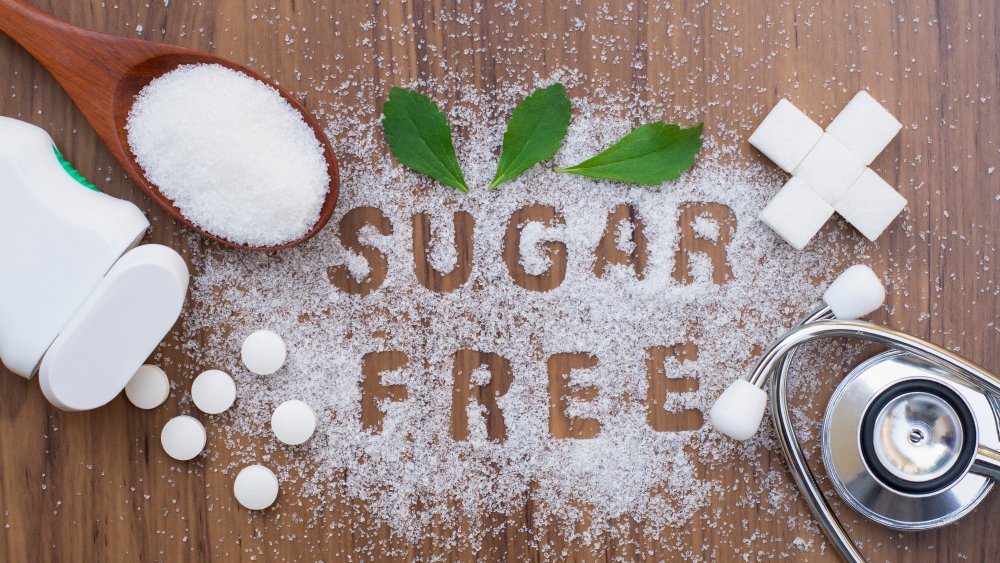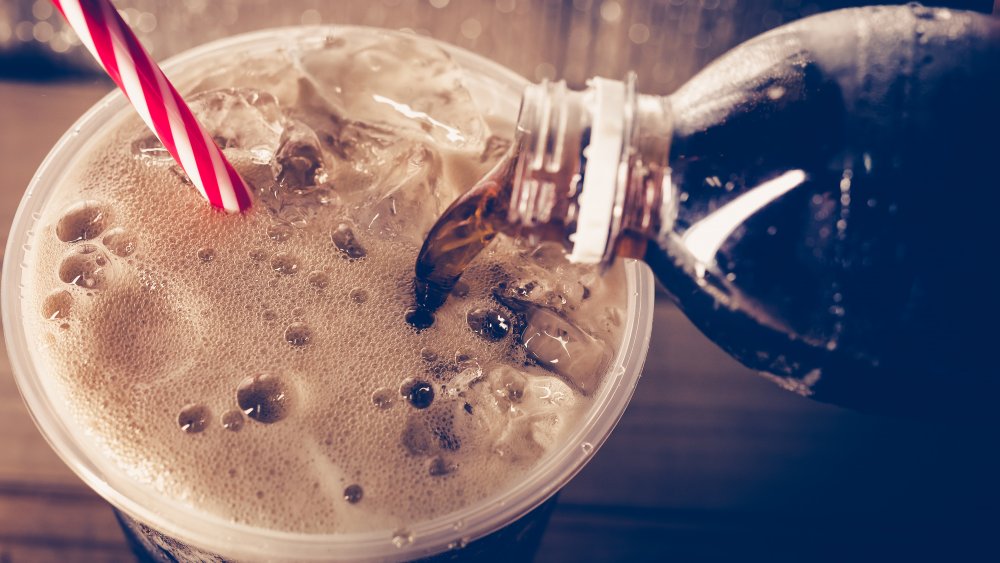This Is What Happens When You Consume Artificial Sweeteners Every Day
Artificial, or non-nutritive, sweeteners are in a growing number of products. The first artificial sweetener, saccharin, was discovered in 1879. Two chemists at Johns Hopkins University accidentally came across it after a substance splashed onto one of the chemist's hands and he discovered it was sweet (via ResearchGate). Five artificial sweeteners have been approved by the FDA: saccharin, acesulfame, aspartame, neotame, and sucralose. The low-calorie sweetener stevia has also been approved (via Harvard Health).
Artificial sweeteners have come under fire for potential health risks. According to ResearchGate, there was an FDA ban proposed on saccharin in 1997 after rats developed bladder cancer. Product labels warned of the potential cancer risk, until saccharin was deemed safe in 2000 by The National Toxicology Programme. Cancer risks aside, artificial sweeteners may cause other changes in your body.
If used as they were initially — and always — intended, artificial sweeteners can help you consume less sugar, and subsequently, fewer calories. If not replaced with other high-calorie foods, they can help lower the risk for heart disease and diabetes (via Harvard Health).
Your sense of taste might change
It's because of this, that many people have increased their consumption of artificial sweeteners. According to Newsweek, researchers found that the use of artificial sweeteners grew by 200 percent in children, and by 54 percent in adults, between the years of 2000-2012. While studies have shown that parents do not want to give them to their children, 77 percent of respondents can't always identify artificial sweeteners in everyday products (via CNN).
Saving calories with artificial sweeteners doesn't always work the way we hope, however. One study that followed 5,158 adults for nearly eight years found that those who regularly consumed artificial sweeteners at least twice per day were more likely to gain weight than those who did not consume the sweeteners. The theory is not that sweeteners cause food cravings, but that people think that if they're saving calories in one place, they have more calories to spend somewhere else. (via Newsweek).
Some think artificial sweeteners allow other indulgences
The human body can recognize five types of taste: salty, sweet, sour, bitter, and savory. Scientists believe that humans evolved to recognize sweet tastes because they often signal a food that is energy-dense and full of carbohydrates (via Healthline). You can see how this might confuse the body when artificial sweeteners offer sweetness without any nutritional value.
According to Harvard Health, since artificial, or non-nutritive, sweeteners are so much more potent than table sugar, they can potentially overstimulate the body's sugar receptors. The result is a limited tolerance for more complex tastes and less desire to eat foods that are naturally sweet, such as fruits and vegetables. And while the brain may be fooled temporarily, a new study released from Columbia University's Zuckerman Institute shows evidence that your gut knows better. A study on mice showed that artificial sweeteners were able to trick the receptors from the tongue to the brain, but not receptors from the gut to the brain (via Endocrinology Network).
You could become addicted, or worse
Diet sodas tend to be the biggest culprit of artificial sweetener consumption. According to doctors speaking with CNN, sodas, both sugared and artificially sweetened sodas have addictive qualities. The mix of sweetness (real or artificial) paired with caffeine and carbonation is enough to keep millions of people coming back for more. The issue becomes over-consumption, and the possibility of negative health effects is very real.
A large observational study of more than 81,000 post-menopausal women showed that those who drank more than one artificially sweetened beverage per day had an increased risk of strokes caused by blood clot. The risk was strongest among obese women and African American women (via American Heart Association). Another study followed 451,743 soda drinkers from 10 countries in Europe. Results showed that consumption of soft drinks, both sugared and artificially sweetened, was associated with a higher risk of all-cause mortality. Consumption of artificially sweetened soft drinks was associated with deaths from circulatory diseases, and sugar-sweetened soft drinks were associated with deaths from digestive diseases (via JAMA Network).
The bottom line: Many people consider artificial sweeteners to be harmless. Others are not so sure. Only you can decide what's best for your own health.



